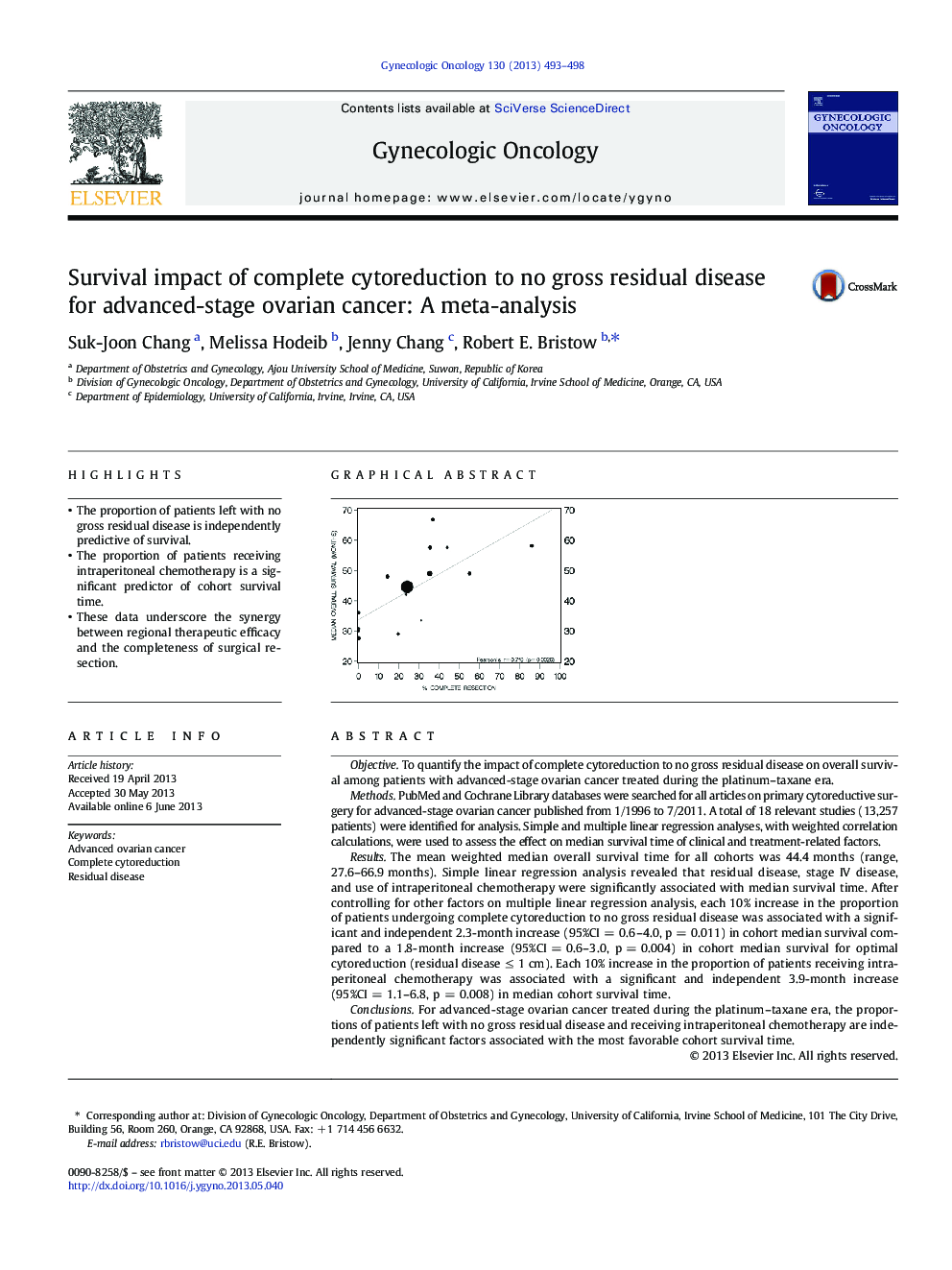| Article ID | Journal | Published Year | Pages | File Type |
|---|---|---|---|---|
| 6184492 | Gynecologic Oncology | 2013 | 6 Pages |
â¢The proportion of patients left with no gross residual disease is independently predictive of survival.â¢The proportion of patients receiving intraperitoneal chemotherapy is a significant predictor of cohort survival time.â¢These data underscore the synergy between regional therapeutic efficacy and the completeness of surgical resection.
ObjectiveTo quantify the impact of complete cytoreduction to no gross residual disease on overall survival among patients with advanced-stage ovarian cancer treated during the platinum-taxane era.MethodsPubMed and Cochrane Library databases were searched for all articles on primary cytoreductive surgery for advanced-stage ovarian cancer published from 1/1996 to 7/2011. A total of 18 relevant studies (13,257 patients) were identified for analysis. Simple and multiple linear regression analyses, with weighted correlation calculations, were used to assess the effect on median survival time of clinical and treatment-related factors.ResultsThe mean weighted median overall survival time for all cohorts was 44.4 months (range, 27.6-66.9 months). Simple linear regression analysis revealed that residual disease, stage IV disease, and use of intraperitoneal chemotherapy were significantly associated with median survival time. After controlling for other factors on multiple linear regression analysis, each 10% increase in the proportion of patients undergoing complete cytoreduction to no gross residual disease was associated with a significant and independent 2.3-month increase (95%CI = 0.6-4.0, p = 0.011) in cohort median survival compared to a 1.8-month increase (95%CI = 0.6-3.0, p = 0.004) in cohort median survival for optimal cytoreduction (residual disease â¤Â 1 cm). Each 10% increase in the proportion of patients receiving intraperitoneal chemotherapy was associated with a significant and independent 3.9-month increase (95%CI = 1.1-6.8, p = 0.008) in median cohort survival time.ConclusionsFor advanced-stage ovarian cancer treated during the platinum-taxane era, the proportions of patients left with no gross residual disease and receiving intraperitoneal chemotherapy are independently significant factors associated with the most favorable cohort survival time.
Graphical abstractDownload full-size image
